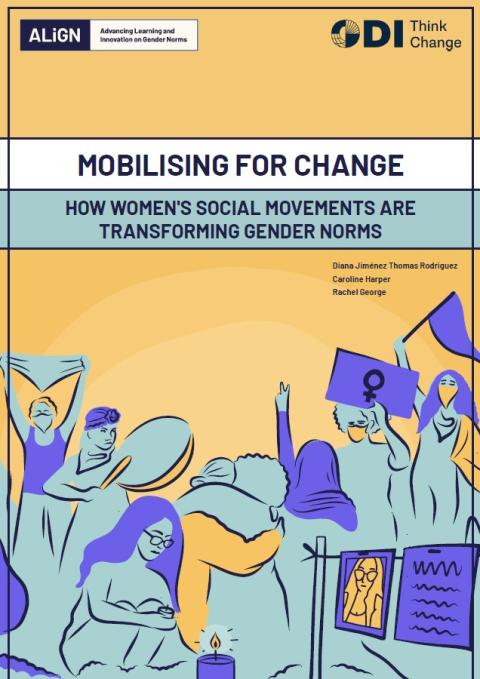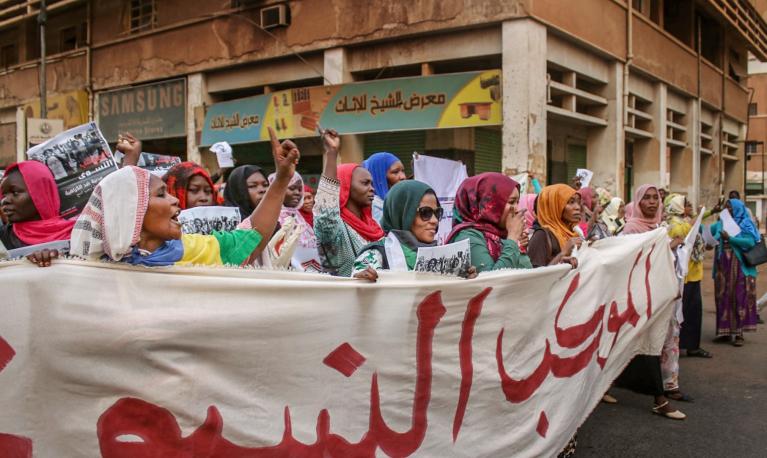
- Report
- 23 November 2021
Mobilising for change: how women's social movements are transforming gender norms
- Published by: ALIGN

Social movements are key agents of social and political change, especially in transformations towards gender justice.
This ALIGN report reviews current literature from around the world on women’s leadership and their participation in feminist and social movements, exploring their contribution to gender norm change. Drawing on evidence largely from Latin America, Northern Africa and Middle East, as well as the rest of the African continent, South and Southeastern Asia, the report outlines the ways in which women-led social movements contribute to transforming patriarchal norms.
Women's and feminist movements do important work in their contexts to initiate societal transformations towards equality and justice. To bring about change, activists primarily occupy public space, lobby governments, create alliances, and appeal to international regimes to pursue legal or policy change. They use an array of tactics to raise awareness, including artistic performances, providing services and running educational workshops and even the #FeministStrike. These are most likely to be used to contest and renegotiate gender roles and relations.
Key messages
Our research suggests that women’s political mobilisation has an important impact on gender norms. The report argues this is achieved through two main pathways:
- by promoting legal and/or policy change, which institutes new normative orders, and thus provides incentives or disincentives for attitudinal and behavioural change; and
- by encouraging the renegotiation of gender roles and relations within society, targeting gendered attitudes and behaviours directly (whether held by men or women) that underpin gender injustice.
Another key finding is how women's and feminist movements frame their struggles tends to result from negotiations between diverse constituencies of women within a given movement. Also, social movements tend to find most success when they ‘vernacularise’ – or adapt – their struggles to local contexts.
- Tags:
- Social movement
- Countries / Regions:
- Global
Related resources
Blog
12 January 2026

Report
12 February 2025

Blog
19 December 2024
